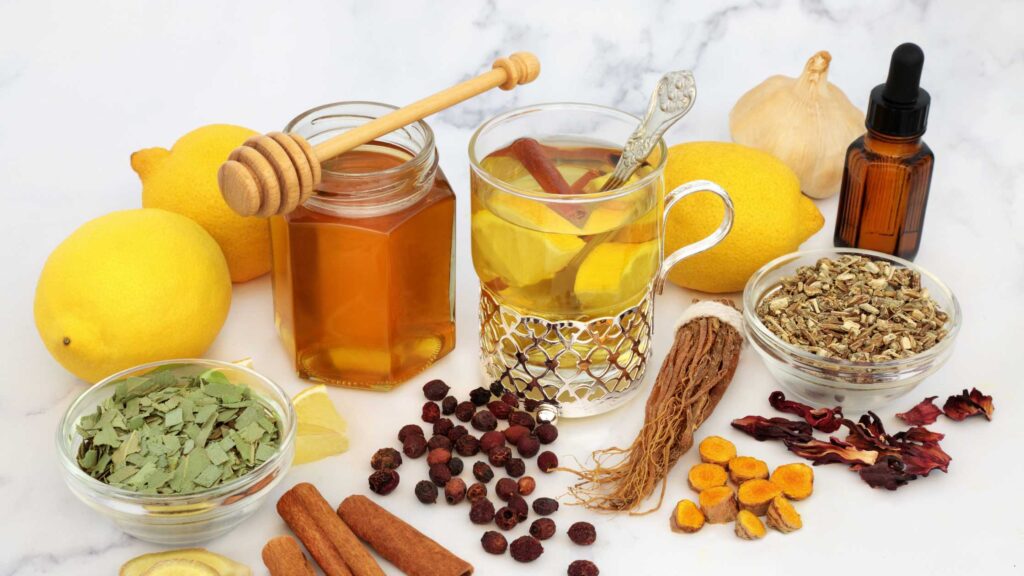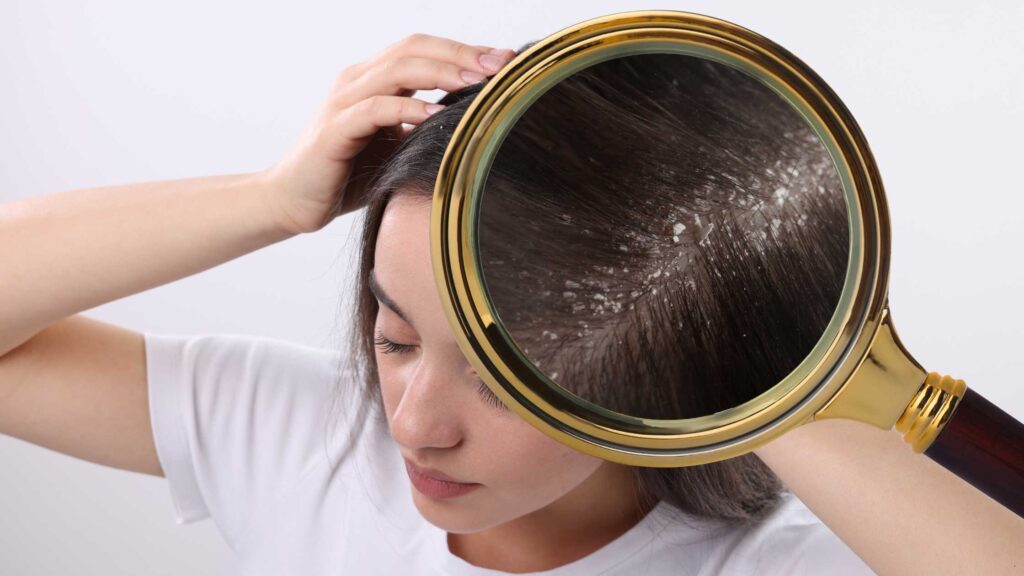Dandruff is a common scalp condition that causes flakes of skin to appear in your hair and sometimes on your shoulders. These flakes are typically white or grayish and can be itchy. Dandruff itself isn’t serious, but it can be embarrassing and bothersome.
The exact cause is unknown, but it’s likely a combination of factors like:
- Malassezia Yeast: This yeast naturally lives on most scalps, but overgrowth can irritate the skin and lead to flaking.
- Dry Skin: Lack of moisture can cause dryness and flaking that mimics dandruff.
- Skin Conditions: Seborrheic dermatitis, psoriasis, and eczema can sometimes show up on the scalp as dandruff-like symptoms.
- Sensitivity: Certain hair products or dyes can irritate your scalp, causing flaking similar to dandruff.
Causes of Dandruff:
- Malassezia Yeast: This fungus lives on most scalps, but overgrowth can irritate the skin, leading to flaking.
- Dry Skin: Lack of moisture can cause scalp dryness and flaking, mimicking dandruff.
- Seborrheic Dermatitis: This skin condition causes oily, red, and scaly patches, often on the scalp.
- Sensitivity to Hair Products: Certain shampoos, styling products, or dyes can irritate the scalp, causing dandruff-like symptoms.
- Other Skin Conditions: Psoriasis and eczema can sometimes manifest on the scalp, mimicking dandruff.
Home Remedies and Treatments:

Home Remedies:
- Regular Washing: This might seem obvious, but washing your hair regularly with a gentle shampoo helps remove excess oil and dead skin cells that contribute to dandruff. However, avoid over-washing as it can worsen dryness and irritation.
- Apple Cider Vinegar Rinse: Mix equal parts apple cider vinegar and water. Apply to your scalp after shampooing, leave it on for 15 minutes, then rinse thoroughly. Apple cider vinegar’s acidity may help balance scalp pH and reduce fungal growth. (Important: Do a patch test first on a small area of skin to check for irritation.)
- Coconut Oil: Massage coconut oil into your scalp before shampooing. Coconut oil has moisturizing and antifungal properties that may soothe irritation and dryness.
- Tea Tree Oil: Dilute tea tree oil with a carrier oil like jojoba oil before applying it to your scalp. Tea tree oil has potential antifungal and antibacterial properties, but be cautious – it can be irritating, so a patch test is crucial.
Treatments:
- Dandruff Shampoos: Over-the-counter dandruff shampoos are readily available and often the most effective solution. Look for shampoos with ingredients like Zinc pyrithione: This ingredient helps reduce flaking and itching.
- Salicylic Acid: This acid helps exfoliate dead skin cells.
- Selenium Sulfide: This ingredient has antifungal properties to combat Malassezia yeast overgrowth.
- Ketoconazole: This is a stronger antifungal medication available in some dandruff shampoos.
Prevention Techniques:
- Manage Stress: Stress can worsen dandruff. Practice relaxation techniques, exercise, and get enough sleep.
- Diet: A balanced diet rich in fruits, vegetables, and whole grains may help.
- Identify Triggers: Pay attention to what seems to worsen your dandruff and avoid those triggers (harsh hair products, hot showers, etc.).
- Sun Exposure: Moderate sun exposure can be beneficial, but always protect your scalp from sunburn.
Gender-Specific Tips:

Men:
Beard Care: Dandruff can sometimes spread to the beard. Use a beard wash and keep it clean.
Styling Products: Opt for water-based styling products to avoid irritation.
Women:
Hairstyles: Tight hairstyles like braids or ponytails can trap oils and dead skin cells, so loosen them up occasionally.
Hormonal Changes: Dandruff can fluctuate with hormonal changes. Consider consulting a doctor if dandruff worsens during menstruation or pregnancy.
Additional Tips:
Scalp Exfoliation: Gently exfoliate your scalp with a scrub or your fingertips to remove dead skin buildup. This can help prevent flaking.
Dietary Changes: While not a guaranteed fix, some people find that a balanced diet rich in fruits, vegetables, and whole grains can improve scalp health.
Stress Management: Stress can worsen dandruff. Practice relaxation techniques like meditation or yoga, get enough sleep and find healthy ways to manage stress.
Conclusion:
Dandruff is a common scalp condition with manageable symptoms. While the exact cause remains elusive, it likely involves a combination of factors like yeast overgrowth, dry skin, and sensitivities. The good news is there are several options to combat dandruff, from home remedies like apple cider vinegar rinses to medicated shampoos. By incorporating regular scalp care, stress management, and potentially some dietary adjustments, you can effectively keep dandruff under control and achieve a healthy, flake-free scalp. If over-the-counter solutions aren’t working, remember to consult a doctor or dermatologist for further evaluation and treatment options.